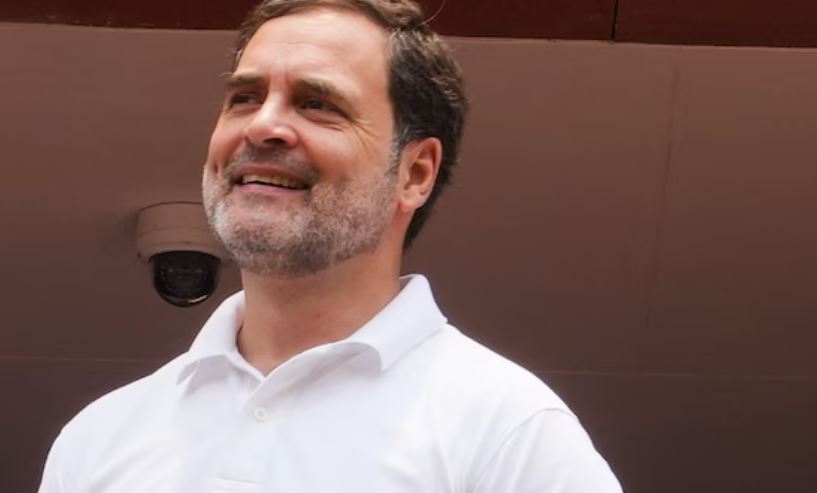In a dramatic political development, Rahul Gandhi, the Leader of the Opposition in the Lok Sabha, has vehemently challenged the decision by Lok Sabha Speaker Om Birla to expunge significant portions of his maiden speech. Gandhi’s critique underscores a broader conflict over the principles of parliamentary democracy and the perceived bias in parliamentary procedures.
Background and Immediate Reaction
On July 1, 2024, Gandhi delivered his inaugural address as Leader of the Opposition, launching a fierce critique against the ruling Bharatiya Janata Party (BJP). Hours later, Speaker Birla expunged 13 segments of his speech. In a letter to Birla, Gandhi argued that this action violated the core tenets of parliamentary democracy and requested the restoration of his expunged remarks.
The Core of the Dispute
Gandhi’s letter to the Speaker highlighted the discrepancy in the treatment of his speech compared to that of BJP MP Anurag Thakur. While Thakur’s speech, laden with allegations, saw only one word expunged, Gandhi’s saw extensive portions removed. This, according to Gandhi, exemplifies selective expunction that defies logical reasoning and parliamentary fairness.
Examination of Parliamentary Rules
The expunction power, Gandhi acknowledged, stems from Rule 380 of the Rules of Procedure and Conduct of Business in the Lok Sabha. This rule allows the Speaker to expunge words deemed unparliamentary. However, Gandhi contended that his remarks did not fall under this purview and were merely reflections of ground realities and factual positions.
Constitutional Rights and Parliamentary Freedom
Invoking Article 105(1) of the Constitution, Gandhi asserted that members of Parliament are granted the freedom of speech within the House. This constitutional guarantee, he argued, empowers members to voice the concerns of their constituents. Gandhi maintained that his speech was an exercise of this right, aimed at highlighting the issues faced by the people.
Public Statements and Political Ramifications
Outside Parliament, Gandhi’s rhetoric sharpened as he directly targeted Prime Minister Narendra Modi. “In Modi-ji’s world, the truth can be expunged, but in reality, the truth cannot be expunged,” he stated, emphasizing that the essence of his speech was grounded in truth, regardless of its expunction from the official records.
Political Reactions and Party Support
Gandhi’s stance garnered robust support from the Indian National Developmental, Inclusive Alliance (INDIA) bloc. Conversely, the BJP, represented by first-time MP Bansuri Swaraj, challenged Gandhi’s speech’s accuracy, particularly on topics such as the Agniveer scheme and compensation issues in Ayodhya. This partisan divide highlights the contentious nature of parliamentary discourse and the strategic maneuvers within the political arena.
Parliamentary Procedures and Speaker’s Authority
Under Direction 115, the Speaker has the authority to address inaccuracies in members’ statements. However, Gandhi’s case raises questions about the application of this authority and the potential for partisan influence. The balance between maintaining decorum and ensuring fair representation of divergent viewpoints is a delicate one that requires careful adjudication by the Speaker.
Implications for Parliamentary Democracy
Gandhi’s challenge brings to the fore critical issues regarding the functioning of parliamentary democracy in India. The allegations of selective expunction not only question the impartiality of the Speaker but also underscore the need for transparency and equity in parliamentary proceedings. Ensuring that all members can freely express their views without undue censorship is essential for the health of a democratic institution.
Conclusion
The confrontation between Rahul Gandhi and Lok Sabha Speaker Om Birla over the selective expunction of Gandhi’s speech epitomizes the ongoing struggle for maintaining democratic principles within parliamentary procedures. Gandhi’s appeal for the restoration of his remarks is not merely a personal plea but a call to uphold the sanctity of parliamentary democracy. As this issue unfolds, it will undoubtedly contribute to the broader discourse on the integrity and fairness of democratic institutions in India.
Summary of Key Learning Points
| Key Learning Points |
|---|
| Rahul Gandhi challenges Lok Sabha Speaker on selective expunction. |
| Discrepancy in treatment of speeches between Gandhi and Thakur. |
| Rule 380 of Lok Sabha rules and its implications. |
| Constitutional right to free speech within Parliament. |
| Political reactions and support from opposition parties. |
| Speaker’s authority under Direction 115 and potential bias. |
| Broader implications for parliamentary democracy. |
Soumya Smruti Sahoo is a seasoned journalist with extensive experience in both international and Indian news writing. With a sharp analytical mind and a dedication to uncovering the truth, Soumya has built a reputation for delivering in-depth, well-researched articles that provide readers with a clear understanding of complex global and domestic issues. Her work reflects a deep commitment to journalistic integrity, making her a trusted source for accurate and insightful news coverage.



